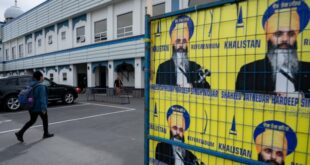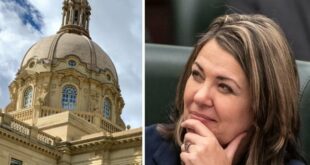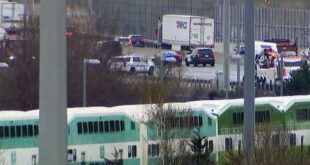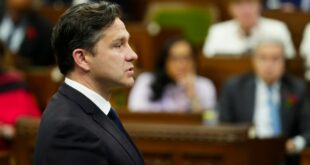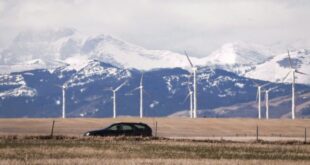B.C. to provide $10M to help preserve the community's history

Seventy years after the British Columbia government forcibly removed dozens of children from their families and placed them in a province-run camp, some survivors and their descendants say a $10-million compensation package, aimed at reconciliation, falls short of their expectations.
Rather, some surviving members of the Sons of Freedom Doukhobors say the B.C. government's financial compensation package has reopened old wounds.
In particular, those interviewed by CBC say they had hoped the government would provide direct compensation to survivors and families in a one-time lump sum payment.
"It's a slap in the face," said Betty Kabatolf, 78, who travelled from the province's Kootenay region to Victoria to hear the government formally recognize the historical wrongs committed against surviving members and their families.
The apology is to be delivered Tuesday morning at the legislature.
Lorraine Walton, the daughter of two survivors of the Doukhobor camp, said many families are glad the province will finally apologize, but hoped for better compensation.
When B.C. Attorney General Niki Sharma first announced a compensation package in early February, Walton, who also works with an advocacy group of survivors, said many families were too overwhelmed to properly process it.
"It's taken us three weeks to put those thoughts together … to say that's not acceptable. We don't want this," she said.
"I think we all stand together in solidarity of accepting the apology. But I have not heard anyone… say 'yes' we like this proposal."
Taken from family home
In addition to delivering an apology, the government will provide $10 million for cultural, historical and health programs.
Kabatolf was eight when she and her siblings were taken from the family's home in Krestova, B.C., and sent to live at a former tuberculosis sanatorium in New Denver, B.C., about 150 kilometres east of Kelowna.
"There was at least six of us in the back seat [of the police car], piled one on top of the other, shaking, crying," said Kabatolf, who recalls how officers came to take the children early one morning in 1954.

B.C. to make a formal apology to Doukhobors
26 days ago
The provincial government will be making a formal apology later this year for its treatment of children from the Doukhobor community in the Kootenays. But the apology is not seen as an entirely positive development.
In a written statement issued Feb. 1, Sharma said her government recognized both the apology and compensation were "long overdue."
Between 1953 and 1959, some 200 children from families belonging to the Sons of Freedom Doukhobors were sent to the camp, where many report they suffered physical and psychological abuse, including being strapped across the hands for speaking in their native Russian, and only seeing their parents twice a month from behind a chain link fence that they were forced to build.
"I didn't know how to be a mom because I didn't have a hug or a kiss from my mom," said Kabatolf. "I had to kiss her through the fence."
The Doukhobors are a group of exiled Russian Christians who settled in B.C.'s West Kootenay in the early 20th century.
The Sons of Freedom, a small group within the Doukhobor community, opposed the public education system, and clashed with the government over the right to educate their children at home, earning a reputation across B.C. for their occasional naked protests, and periodically burning down their own homes as a rejection of materialism.
"For decades this was described as a Doukhobor problem. As if every Doukhobor subscribed to what was going on in terms of public nudity and torching houses," said retired law professor John McLaren.
"That's never been true," he said.
Tuesday's apology has been more than 20 years in the making and follows two reports from B.C.'s Ombudsperson, which called on the province to make a formal apology to affected Doukhobors and compensate them, neither of which were delivered in the ensuing years.
The Doukhobors themselves have also pressed for an apology and compensation since the 1990s.
The Ombudsperson is an independent officer of the legislature who investigates complaints of unfair or unreasonable treatment at the hands of provincial or local officials.
The government says the $10-million package will be used to:
-
preserve and promote the community's cultural heritage and historic sites;
-
support educational and cultural programs;
-
conduct research and archive vital documents and oral histories; and
-
expand access to mental-health services and wellness programs.
Today, there are an estimated 100 survivors of the Sons of Freedom group. Many are in their 70s and 80s.
ABOUT THE AUTHOR
Network Field Producer
Ethan Sawyer is a Network Field Producer for CBC News. You can contact him at ethan.sawyer@cbc.ca, or by phone at (604) 662-6784.
With files from Lyndsay Duncombe and Georgie Smyth
*****
Credit belongs to : www.cbc.ca
 MaharlikaNews | Canada Leading Online Filipino Newspaper Portal The No. 1 most engaged information website for Filipino – Canadian in Canada. MaharlikaNews.com received almost a quarter a million visitors in 2020.
MaharlikaNews | Canada Leading Online Filipino Newspaper Portal The No. 1 most engaged information website for Filipino – Canadian in Canada. MaharlikaNews.com received almost a quarter a million visitors in 2020.



